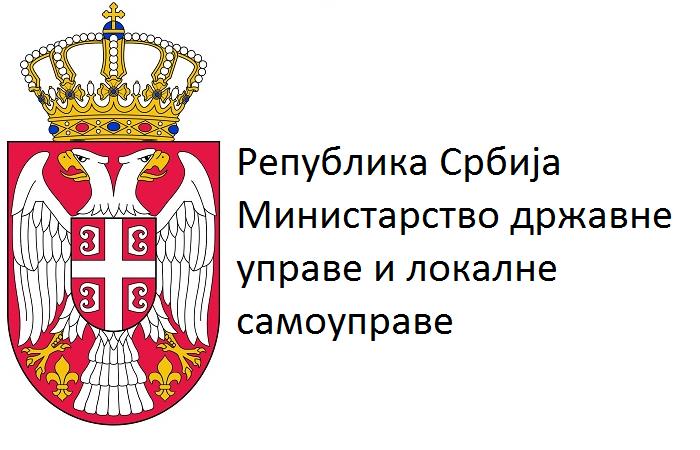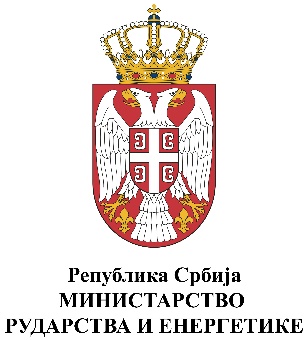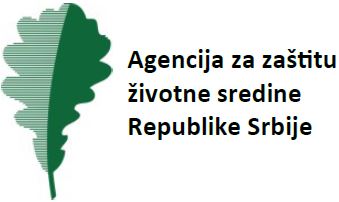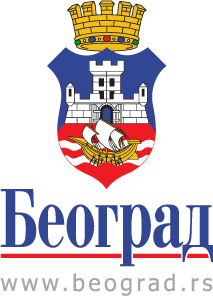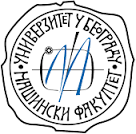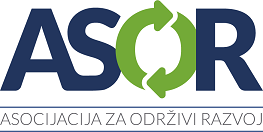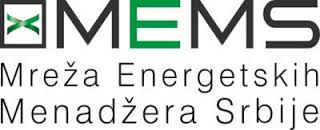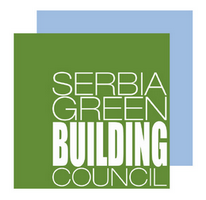December 1st , 2016, Belgrade
CEDEF Forum
VII International Energy Forum
Energy efficient and smart cities
Central European Development Forum, CEDEF, in cooperation with the Ministry of State Administration and Local Self-Government, the Ministry of Construction, Transport and Infrastructure of the Republic of Serbia, the Ministry of Mining and Energy of the Republic of Serbia, the Secretariat of Energy of the City of Belgrade and the Agency for Environmental Protection of the Republic of Serbia organized SEVENTH INTERNATIONAL CEDEF ENERGY FORUM "Energy efficient and smart cities” 1st December 2016 in Belgrade.
The forum is aimed at:
- Presentation of examples of good practice in energy efficiency in local governments of Serbia
- To highlight the importance of implementation of energy efficiency and renewable energy in the public sector, especially in view of the role of energy management in cities and municipalities,
- Emphasize the need for the use of advanced technologies in the field of ICT, energy management, district heating, KHG, public lighting, waste management, etc.,
- Emphasize the models of financing energy efficiency projects in local governments
- Remind the importance of hospitality operations and safeguard the assets and resources of cities in order to increase their resilience to the insurance against natural disasters which are more frequent due to climate change
Program of the Forum can be found here.
The presentations can be found here.
Photos from the event can be seen here.
What we should do in order to make cities in Serbia more energy efficient and "smarter"? Does every city have the same chance that with adequate solutions will become a smart, regardless of the available resources? With ICT technology, the application of technological innovation, efficient and sensible use of resources, saving energy and reducing negative impacts on the environment come to the smart city. The ultimate goal is sustainable development, limiting the effects of climate change but also the quality of life, and the need for citizens to feel a higher level of service, ranging from electricity without interruption, better quality of drinking water, faster and better public transport to the better services in public sector and healthcare.
The forum is part of a broader initiative to promote capacity of building in the implementation of energy efficiency measures, and in accordance with the legal provisions and national action plans for energy efficiency. The tendency of this Forum is brining the innovation and new approaches in the implementation of energy efficiency projects at the local level.
In their quest for sustainable, equitable, and innovative models associated cities, state and municipal leaders around the world watching the experience of other cities in search of ideas and study best practice, although there is no single solution that fits all. Therefore, the speakers of the Forum were from different spheres but all together surrounded the theme of smart cities and shared their experience in these areas.
Dr Ivan Bosnjak State Secretary of the Ministry of State Administration and Local Self- Government talked about E-system that works on the territory of Serbia and in cooperation with all other ministries. "This system allows you to quickly and effectively address the issue of citizens, has existed since 2010 and today we have over 700 e-services. It is also the basis for the creation of a "smart city". It is interesting that the most used service sign-extension of the authorized vehicle roadworthiness tests, is currently the most actual replacement of old health insurance cards for new electronic cards (95000 requests have so far been submitted), enrollment of children in kindergartens in the city of Belgrade and others. Thus reducing the pressure on the administration and facilitates the entire process. It is interesting that at the level of local self-government usually seeks the issuance of a certificate of free marital status, "said Dr. Bosnjak.
Antonela Solujić, Head of the Department for improving energy efficiency in the Ministry of Mining and Energy of the Republic of Serbia, speaking on the topic of energy efficiency in the context of the creation of "smart cities", pointed out the importance of education in this area and mentioned that two more trainings for energy managers being implemented in cooperation with the Faculty of Mechanical Engineering in Belgrade completed in June and October this year and so far 33 managers completed the training. Solujić especially emphasized the specific obligations that we have implemented in the framework of the European directive on energy efficiency.
The new Housing Act will bring the foundation that funds for energy efficiency of local self-government may have its full implementation in investments in energy efficiency in residential buildings. That spoke Jovanka Atanacković, Assistant to the Minister of the Ministry of Construction, Transport and Infrastructure of the Republic of Serbia. "In the context of increasing use of energy efficiency, households and housing will be able to apply more efficiently and to use these funds. The new Law on Housing and Maintenance of buildings brings a new mechanism of building management, will be known who will manage and what are his/her responsibilities. Assembly tenants will now be residential community, which will have legal personality, its own assembly and administrator, as well as the registration number, tax identification number and the current account, which will give them certain rights and obligations, "said Atanacković.
"Smart people create smart cities and in order to generate them we need a basis represented by telecommunications Corridors. Telekom Serbia as the largest telecommunications operator working on the creation of smart networks necessary for the development of smart cities," said Branko Stefanović, Director of functions for large customers Telekom Serbia..
Forum has gained an international character by the presence of Fabian Gems, a commercial attaché, Austria's embassy, who said that Vienna’s 22nd District Aspen as a good example of implementation of smart city technologies and invited to the event Future of Building, 17-18. May, 2017 in Vienna.
Conference “The Future of Building” in Austria, on 17th and 18th of May, 2017
A joint initiative of the Austrian Federal Ministry of Science, Research and Economy and the Austrian Federal Economic Chamber, resulted in holding the conference on 17th and 18th of May in Austria - "The future of building". The aim of this conference is to draw attention to innovation in the building as well as in the infrastructure sector. The main emphasis will be placed on innovative solutions for buildings, sustainable refurbishment and high-quality buildings with focus on life cycle, latest technologies, new project ideas and finding cooperation partners for the implementation of new business opportunities. The conference will offer information about the current situation of the market, B2B meetings as well as an excursions to considerable building projects on the second day. Registration at B2B platform is required for all participants to be able to participate at the conference.

You can find detailed program here.
Belgrade, 2nd of December, 2016.
"Zrenjanin is an example of a city that applies smart technology and it can be said that is an example of a city that has the highest weight of the concept of smart city. Particularly well-functioning e-government system 48 which is at disposal to the citizens, as well as GIS system where you can make a visual inspection of cadastral parcels by municipalities, which are the subject of a public bid for the lease of agricultural land owned by the state, "said Dusko Radisic, Deputy Mayor of the city of Zrenjanin.
Duska Mrvoš, a member of the Board of Directors' Green Building Council of Serbia ", spoke about the importance of energy efficiency in the public sector about our current position, successful examples in the region, Croatian example and extremely successful example of the Netherlands and their methods for determining energy efficiency.
Prof. Dr. Miroslav Kopečni, a representative of the ASOR, emphasized that even the most developed countries like the US and Austria recognize the importance of energy efficiency increasing application of renewable energy and the need not to make more energy-efficient large cities but also smaller towns, villages, such as the case of Gisingen, Austria.
Andjela Vila, PR manager of the project "Banatsko the sun for all" in front of the town of Pancevo, spoke about the pilot project funded by the EU under the IPA project. It is especially emphasized that it is possible to realize ideas in the field of energy efficiency, there are funds and assets and work on creating smart cities and the fight for sustainable development should not present a challenge.
Otherwise, the project of the solar system for the production of thermal energy in the town of Pancevo is the largest solar project of this type in recent Serbian history. With this project, 360 solar collectors (Viessmann German technology) will produce heat from solar energy, which will be used by Toplana Pančevo for heating domestic hot water for the citizens but also to increase the efficiency of their own heating during the heating season.
Energy efficiency is one of the most efficient and the most cost effective way to achieve sustainable development. Achieving the standards in the field of energy efficiency is also directly related to the process of convergence of our country to the EU. Local authorities in Serbia have a very important role in the energy sector, and thus to achieving energy efficiency standards. Especially cities and energy producers as well as the largest consumers of energy. The local governments are making decisions that directly affect the energy management. Concept of energy efficiency is directly related to smart planning, and one of the best examples is the insurance of natural disasters that are p[product of climate change. Only secured cities are resilient..
A smart city is a very broad term and includes all the basic and strategic areas in the functioning of a city - from water supplies, power management, via public transportation, electronic government, to the attractiveness of the city in terms of a healthier life with less pollution, increased sense of security and readiness to receive more tourists and visitors during major events.
Smart city integrates all of these existing functions of public services with new features such as electric vehicles, distributed power generation, electronic health, emergency management, security video surveillance and more, all with the final goal to increase the efficiency of existing systems, reduce costs of electricity and establish communication among the subsystems of the city and thus significantly reduce the emissions of carbon dioxide and other pollutants.






